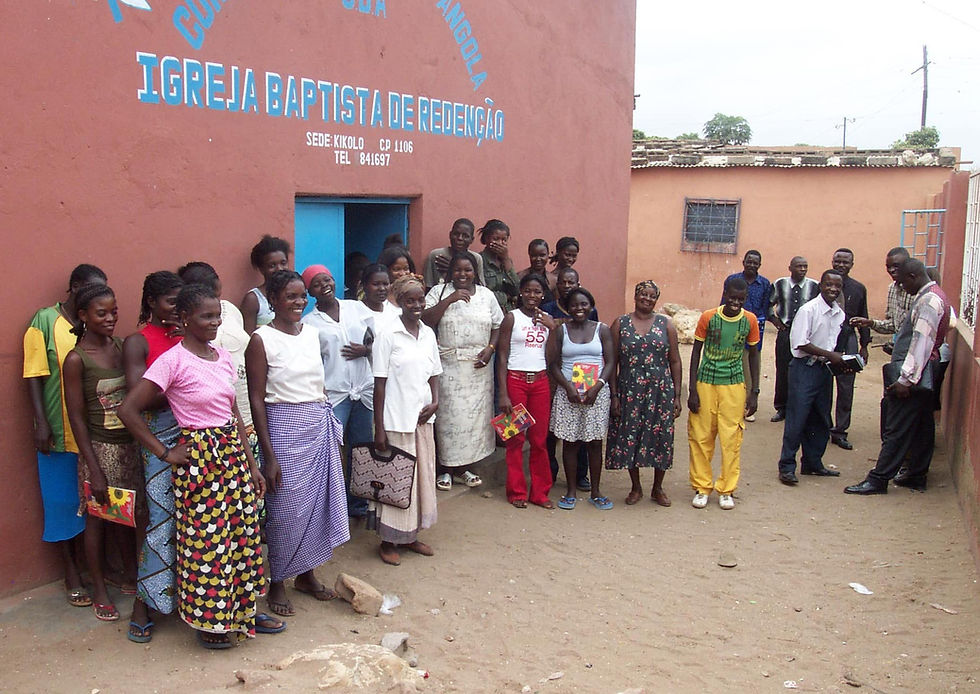Faith and Works – It’s Not an Either-Or Choice
- Tom Faletti
- 7 days ago
- 4 min read
Literacy champion Frank Laubach showed how working to help others and praying constantly in a personal relationship with God go together.

Frank C. Laubach saw a need and devoted his life to filling it. The need was reading literacy. In response, he created a transformative adult literacy program that spanned the globe. And he did it while nurturing an intense personal relationship with God. He showed that faith and works are not at odds with each other but are both part of the same relationship with God.
Laubach was born in Pennsylvania and educated at Princeton University and at Union Theological Seminary and Columbia University in New York. He worked in the Philippines as an evangelical Christian missionary. After founding churches in remote areas of the country, he established a seminary in Manila. Then he returned to the remote island of Mindanao to serve the mostly Muslim population there, and decided that their greatest need was literacy.
As he sought to meet that need, he pioneered techniques for expanding adult literacy that included the use of picture-word-syllable charts and an “each one teach one” approach that turned newly literate people into teachers of others. By the time he died in 1970, he had traveled to more than 100 countries. His materials had been translated into more than 300 languages and dialects. And an estimated 100 million people had learned to read, directly or indirectly because of him.
But Frank Laubach’s story is about far more than literacy. His faith was a central part of his work.
Some people see a conflict between faith and works. For Laubach, it was not either-or; it was both-and. Spending time with God and meeting the needs of others were both part of one seamless relationship with his Father.
“Hunt out the deepest need you can find and . . . try to meet that need”
Laubach believed that serving others allowed him to be part of God’s work in the world. He compared it to a child entering into the activities of his or her father out of love:
“Friendship with God is the friendship of child with parent. As an ideal son grows daily into closer relationship with his father, so we may grow into closer love with God by widening into his interests, and thinking his thoughts and sharing his enterprises.” (Letters By A Modern Mystic, first published in 1937, p. 53)
He insisted that this friendship with God involves action in the world:
“All I have said is mere words, until one sets out helping God right wrongs, helping God help the helpless, loving and talking it over with God…. God simply creeps in and you know he is here in your heart. He has become your friend by working along with you” (p. 53).
Laubach thought both talking with God and working with God to address the needs around us were key elements of faith:
“So if anybody were to ask me how to find God I should say at once, hunt out the deepest need you can find and forget all about your own comfort while you try to meet that need. Talk to God about it, and he will be there. You will know it.” (p. 53)
In the Gospel of John, Jesus says, “I am the true vine” (John 15:1) and then gives us two directions: “Abide in me” and “bear fruit” (15:4, 5). The first directive calls us into relationship with Him. The second points us toward living out that relationship in service to others.
For Frank Laubach, both parts were obvious and essential elements of the Christian life.
The goal: “Filling every minute full of the thought of God,” yet “wide open toward people and their need”
Many people place more emphasis on either their personal relationship with God or their service to others. Laubach saw the connections between them.
At beginning of a new year, he wrote about the New Year’s Eve service he had just attended:
“I resolved that I would succeed better this year with my experiment of filling every minute full of the thought of God than I succeeded last year. And I added another resolve – to be as wide open toward people and their need, as I am toward God. Windows open outward as well as upward!” (p. 6)
His first resolution echoes Paul’s command in 1 Thessalonians 5:17 to “pray constantly” or “pray without ceasing.” Laubach wanted to be in constant communication with Christ. He explained it this way:
“We make Him our inseparable chum. We try to call Him to mind at least one second of each minute. We do not need to forget other things nor stop our work, but we invite Him to share everything we do or say or think.” (p. 57)
But this did not detract at all form his second resolution: to meet the needs of others. Constant communication with Christ does not take away from our work; it brings Christ into all of our activities.
In my next post, I will explore the specifics of how Laubach tried to do this. We have much we can learn from him.
Faith and works: A personal relationship with God AND working to help others
Frank Laubach was a man of faith and a man of action. Not faith alone. Not action alone. Both, together.
He challenges me to serve others passionately while I stay in constant communion with God.
What does his life say to you? What is one step you can take toward a life that is marked by both the work of helping others and the faith embedded in a personal relationship with God? Can you take one small step today?





Comentarios